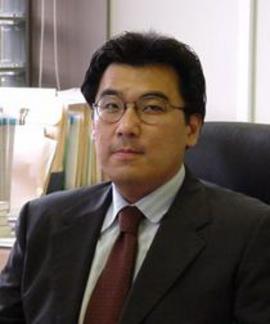I Want to Learn How to Think Beyond Academic Disciplines
Vol.5 2010.03.16 UEDA Kazuhiro
Meanings of the Body to Human Cognition
March 15: Preliminary Event
March 16 - 17: Lectures
Body Theory discusses meanings and roles of the human body and can be approached from various academic disciplines; in this lecture, I will introduce you to previous efforts concerning an approach from cognitive science and cognitive neuroscience. By doing so, I will uncover what the body means to human cognition and intelligence. Specifically, this lecture consists in three large parts. I will explain, in Part 1, the process of how in early cognitive science, human brain was the only field of inquiry and, contrasted with the then nascent computer and after discussions over the issue of human cognition and intelligence, the fact that the body has important meanings to human cognition and intelligence has been almost ignored. However, as I will explain in Part 2, there came to be reports of many cognitive phenomena that defied such views of intelligence and uncovering the body's meanings to human cognition and intelligence has become a research objective. In particular, I will discuss meanings and roles of the body with a focus on cognitive phenomena related to interaction with the environment, the development of spatial perception, and communication between humans. In Part 3, I will explain how, recently, meanings of the body have been discussed from the perspective of cognitive neuroscience as well. I will explain how the mechanisms of phenomena, hitherto only thought of as mysterious, such as that of phantom limb came to be discussed in scientific manners.
- Instructor
-

- UEDA Kazuhiro
- Professor at Interfaculty Initiative in Information Studies / Department of General Systems Studies, College of Arts and Sciences Professor at Graduate School of Interdisciplinary Information Studies / Department of General Systems Studies, Graduate School of Arts and Sciences My areas of specialty are Cognitive Science, Cognitive Brain Science and Intellectual Information Studies. My research scientifically looks at the intelligence of humans and society. I conduct my research on Cognitive Science and Cognitive Brain Science, aiming toward unraveling high level human cognitive activities, applying my findings to the field of engineering, and putting the findings into social use. Specific examples include: "Innovations Stemming from Ideas of Consumers," "Cognitive Structures of Creativity," "Order inside the Brains of Individuals Highly Skilled at Speed Reading and Calculation with Abacus," "Animacy Perception for Artificial Objects," "Human Perceptions of Sociality in Relation to Visual, Biological Motion, and Other Forms of Cognition," ad "Inter-human Collaboration." I have received awards such as the 7th Docomo Mobile Science Prize Excellence Award (2008), Best Paper Prize from the Japanese Cognitive Science Society (2004 and 2007), and Excellent Paper Prize from the Japanese Association of Educational Psychology (2007).
- Other Lessons